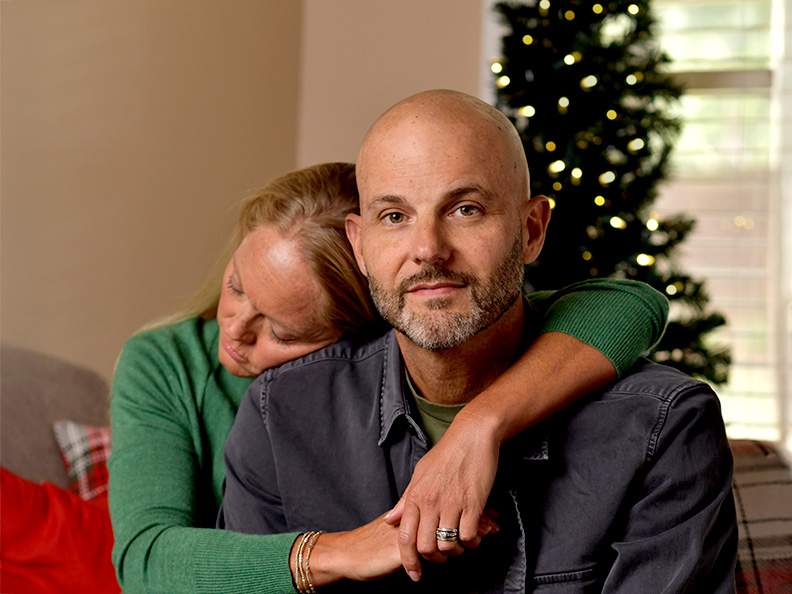Your gift is 100% tax deductible
Questions to Ask About Lymphoma of the Skin
It’s important to have honest, open discussions with your cancer care team. They want to answer all your questions about your skin lymphoma, no matter how minor they might seem. Below is a list of questions to get you started.
When you're told you have skin lymphoma
- What kind of skin lymphoma do I have?
- Has my biopsy been reviewed by a pathologist who is an expert on skin lymphoma?
- How sure are you of my diagnosis?
- What is the stage (extent) of the lymphoma, and what does that mean in my case?
- Do I need any other tests before we can decide on treatment?
- Do I need to see any other types of doctors?
- Is my lymphoma curable?
- If so, what are the chances of a cure? If not, how well can the disease be controlled?
- If I’m concerned about insurance coverage or the costs of cancer care, who can help me?
When deciding on a treatment plan for skin lymphoma
- How much experience do you have treating this type of lymphoma?
- Should I get a second opinion before starting treatment? Can you suggest a doctor or cancer center?
- What are my treatment choices?
- What do you recommend and why?
- Do we need to treat the lymphoma right away?
- What is the goal of the treatment?
- What should I do to be ready for treatment?
- How long will treatment last?
- What will it be like? Where will it be done?
- What are the risks or side effects of the treatments you suggest?
- How will treatment affect my daily activities?
- What is my outlook for survival?
- What are the chances of the lymphoma coming back with these treatment plans?
- What would we do if the treatment doesn’t work or if the lymphoma recurs?
During treatment for skin lymphoma
Once treatment begins, you’ll need to know what to expect and what to look for. Not all of these questions may apply to you, but getting answers to the ones that do may be helpful.
- How will we know if the treatment is working?
- Is there anything I can do to help manage side effects?
- What symptoms or side effects should I tell you about right away?
- How can I reach your office on nights, holidays, or weekends?
- Are there any limits on what I can do?
- Can you suggest a mental health professional I can see if I start to feel overwhelmed, depressed, or distressed?
After treatment for skin lymphoma
- What type of follow-up will I need after treatment?
- What symptoms should I watch for?
- How will we know if the lymphoma has come back?
- What would my options be if that happens?
- When should I return to my primary care doctor for regular medical care?
Remembering what your doctor says
It can be hard to remember everything you’re told at each doctor’s visit, especially when you’re anxious or afraid. Even if your cancer care team carefully explains things, you might not hear or remember all that’s said or shown to you.
Here are some ways to help you remember:
- Take notes.
- Ask if you can record your talks.
- Take a family member or friend with you.
- Ask that person to remind you of questions you want to ask.
- Ask them to take notes, so you can focus on listening and talking with the doctor.
Along with the sample questions listed here, be sure to write down some of your own. For example, you might want more information about recovery times so you can plan your work or activity schedule. Or you might ask about clinical trials.
Learn more in Who Is the Cancer Care Team?
- Written by

Developed by the American Cancer Society medical and editorial content team with medical review and contribution by the American Society of Clinical Oncology (ASCO).
Last Revised: May 19, 2025
American Cancer Society medical information is copyrighted material. For reprint requests, please see our Content Usage Policy.
American Cancer Society Emails
Sign up to stay up-to-date with news, valuable information, and ways to get involved with the American Cancer Society.



